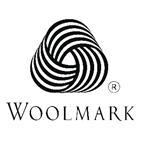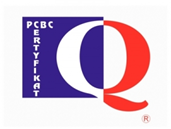The warranty mark allows entrepreneurs to mark their products with an organisation-certified symbol. The purpose of using this mark is, first of all, to ensure that potential customers have certain desired characteristics of the product, such as high quality, safety of use or environmental neutrality.
Functions of a guarantee trademark
While the primary function of an individual mark is to indicate the origin of goods from a particular undertaking, in the case of a guarantee mark it is to indicate certain specific characteristics of the product.
- From the perspective of the trader, a guarantee mark has a predominantly advertising function, since its affixing on a product is intended to inform the potential buyer of the characteristics mentioned above, such as quality or geographical origin [1].
- On the other hand, from the point of view of the organisation to which the registration has been made, the mark in question has a promotional function. In this case, its function will be to promote certain characteristics of the good or service.
- From a consumer perspective, according to of view E. Chmielewska, the most important will be the warranty and quality function. The purpose of the sign is to ensure a potential customer that the goods have certain properties, which is subject to the control of the organisation – trade mark owner [2].
Examples of characters
- WOOLMARK – an example of a guarantee trademark is WOOLMARK. The right to mark products with WOOLMARK / WOOLMARK BLEND / WOOL BLEND marks is granted to manufacturers whose products meet the requirements of the quality standards established by The Woolmark Company. This organisation works for the promotion of wool in the world by initiating research and development, implementing promotional and marketing programs and setting quality standards for 100% wool products and mixtures with wool content.

- The Q-quality mark – national guarantee mark. It is a certificate awarded to products by the Polish Centre for Testing and Certification. The Q certificate means that the product meets above-average requirements and its quality is comparable with the quality of renowned world producers. The evaluation and distinction concern not only the quality, but also the safety of use and environmental protection.

Prior to the amendment of 15 January 2019, the so-called common guarantee trademark or otherwise guarantee trademark could have been registered in favour of an organisation having legal personality. The organisation created regulations, in which it provided for rules to be followed by the entrepreneurs associated in it who wanted to emphasise that their products have the desired properties specified in the regulations.
Changes introduced by the amendment
Amendments to the Industrial Property Law Act were introduced by the Directive of the European Parliament and of the Council (2015/2436) of 16 December 2015, aiming at approximating the laws of the Member States relating to trade marks. The amendment introduces several significant modifications concerning, among others, the entity entitled to register and the obstacles to registration of such a sign.
Which entity may have a warranty mark registered with?
According to the latest amendment, the right of protection for a guarantee trademark may be granted to a natural or legal person – including institutions, bodies and entities governed by public law – who does not conduct business activity involving the supply of goods of the same type as certified goods. This is a significant change compared to the previous regulation, as a guarantee trademark (previously called a ‘joint guarantee trademark’) could only be registered in favour of an organisation having legal personality. Therefore, the catalogue of entitled persons was significantly enriched.
In what circumstances will the Patent Office refuse to register a guarantee trademark?
The Patent Office will refuse to register a warranty mark when:
- the Patent Office finds out that an unauthorized entity that primarily conducts business activity consisting in supplying goods of the same type as certified goods wishes to do so. As in the previous regulation, the authorized entity cannot use the trademark itself as a distinctive feature;
- the regulations governing the use of the trade mark are not attached or do not meet the formal requirements specified in Article 138 (4);
- the regulations governing the use of the mark are contrary to public policy and morality. The above obstacle to registration is a novelty of the amendment introduced by the legislator. The general clause makes the statement that the rules of the trade mark regulations are contradictory to the above mentioned values an evaluation clause;
- there is a risk of misleading the public as to the nature or meaning of the mark, in particular if it can be considered as a sign other than a guarantee mark. It seems that the amendment introduces an indirect requirement that the nature and content of the trade mark undoubtedly indicate that it has a guarantee character and does not cause any risk of confusion when taking into account other signs, including individual trade marks, whose primary function is to indicate origin from an authorised entity.
It is worth noting that despite the repeal of provision 137, Article 137 (1) remains in force, which provides that in matters not regulated in the chapter on guarantee trade marks, the provisions on trade marks shall apply accordingly. Therefore, a guarantee trade mark must fulfil all the conditions for registration of an individual trade mark.
In conclusion
The amendment to the Industrial Property Law Act modifies the catalogue of entities authorized to register a warranty mark and introduces additional restrictions on its registration. The discussed changes introduced to the Polish legal system make the regulation more detail concerning guarantee trademarks. From a practical point of view, it seems that the change is justified, especially as it enables natural persons to register signs of this type. Certainly, there are authorities of various branches of industry, such as famous culinary critics (who can certify food products) or eminent orthopaedic doctors (who award a quality mark to car seats healthy for the back), who enjoy good reputation and social trust.
Sources:
- Demendecki, A. Niewęgłowski, J.J. Sitko, J. Szczotka, G. Tylec, Industrial Property Law, LEX commentary, Warsaw 2015
- Nowińska, U. Promińska, M. du Vall, Industrial Property Law, Lexis Nexis, Warsaw 2007
- Chmielewska, Joint guarantee trademark – characteristics and specificity of the institution, ZNUJ PPWI 2013
- https://www.auto-motor-i-sport.pl/technika/Test-foteli-w-12-samochodach-z-roznych-segmentow,18689,1
- https://www.pcbc.gov.pl/pl/uslugi/certyfikacja-wyrobow/wyroby-spozywcze/znak-jakosci
- http://www.swiatwelny.pl/faq/co-to-jest-woolmark


